By some miracle our police guards were still alive and well the next morning. And even more amazing was that they were still in fine humour, saying nobly that they were not at all cold patrolling the hotel grounds during the bitterly freezing evening. Perhaps they were just suffering from terminal relief that they were leaving us that day as we were heading to the Shandur Pass and onto the Gilgit-Baltistan (formerly Northern Areas) Region. We had enjoyed their company and were sad to say our goodbyes.
More disturbing was our parting of ways with our driver Sardar. His car was suffering from some serious private parts problem and he was unable to secure another vehicle for our forward travels. Sardar's face looked sadder and more worried than ever and we felt very sorry to be leaving him at Buni.
A bright, crisp and sunny morning greeted us and we were able to appreciate the wonderful surrounding mountain scenery of the Hindu Raj from our lovely hotel. As mentioned in an earlier entry, electricity provision is somewhat erratic - to say the very least - all through Pakistan. We were fortunate that we had electricity for our stay in Buni, were able to shower and wash our hair and were feeling totally refreshed from a good night's sleep. It's amazing what a difference it made to feel alive again.
We were very pleased also to hear that at last the Japanese tour group was able to secure a flight back to Islamabad. Our new driver Zia arrived with his very well kept jeep. We bade our sad farewells to Sardar and the police and set off on our travels toward the much anticipated Shandur Pass.
Zia was a very capable but fast driver. The road was predictably rugged, in places more like a dirt track with frequent wash aways and at times we were faced with streams actually crossing the road. The road barely accommodated one vehicle and on the valley side were enormous scree slopes yawning several hundred meters or so down to the river beds. Once again we followed the Mastuj River and once again we were treated to simply spectacular scenery.
"Slow down!" exclaimed Sadruddin several times to Zia. We agreed wholeheartedly. This was no place to speed and we joined the "Slow down Zia" chanting until poor Zia did eventually drive much more slowly. He was obviously experienced and well used to the jeep road but it didn't help anyone's nerves to be driving fast around these roads. Zia, whose name was in fact the same as the infamous former Pakistani President "Zia al Haq", was a very proud owner of his jeep which he kept immaculately. It was a large, sturdy vehicle and thankfully relatively comfortable.
The roads in the surrounding villages were no wider. At one stage when we were passing another jeep in an impossibly tight squeeze the two vehicles actually locked together, totally immobilised. Pakistani drivers are amazingly calm and resourceful. Zia, like Sardar was totally unflappable. He calmly prised a rock underneath his jeep which released the two cars and we were off on our way. There was no fuss, no blame nor any unpleasantries. We could just imagine the drama we would have seen if the situation had occurred in Australia.
The best way for me to describe the road from here on is to relate that the 32 kilometer trip from Buni to the Mastuj turnoff which is the fork in the road that leads to Shandur Pass took just on two hours.
Entering the dusty village of Mastuj we saw crowds of angry looking men gathered in the streets and staring hard at our jeep. It seemed that the police were everywhere too. Loudspeakers amplifying agitated voices boomed around the town. The scene looked threatening and there was no way we could proceed through the blocked roads. Had the Taliban come to town, we wondered? And for the first time I noticed a flicker of concern cloud across Sadruddin's usually jovial face. Police marched up to our stationery vehicle and although we could not understand what was said, there was no doubt that the situation looked serious. Eventually we were waved on through the parting crowds, the local villagers staring suspiciously at us as we drove through. It was the first and really only time during our 2011 travels through Pakistan that we had felt at all uneasy.
No-one talked for a while but Sadruddin eventually explained that the crowds were mounting a demonstration through a general township strike. The government had apparently made a decision to divert funds that were ear marked for a proposed road tunnel through the Lowari Pass which would have meant that the local people of the Chitral District would have had an all weather and all seasons access to the southern regions of Pakistan. Apparently the Chief Minister for this northern region who was based in Gilgit, was visiting the area within the next few days with a team of government officials, and the disgruntled villagers were raising their concerns in advance with local authorities. We were relieved but pleased to move on.
Since arriving in Pakistan we had heard nothing of any local or international news. Well, I guess we didn't have English television at the hotels and so far we had no access to the Internet. And to be truthful, we didn't ask or perhaps we really didn't want to know. Anyway, there was not a lot we could do if there were any reprisals after Osama bin Laden's assassination. We just hoped that if there was trouble, that it would take Al Qaeda some time to re-group after the loss of their leader. But situations like the one we encountered in Mastuj, whilst nothing happened, was a poignant reminder of just where we were and how isolated the region was. And after our Dubai experience, we had absolutely no faith in our Australian Foreign Affairs people helping us if we did get into trouble.
The two hour trip from Mastuj to Shandur followed the Mastuj Valley which was lush, green and picturesque, contrasting sharply against the arid, treeless but beautiful Hindu Raj mountain peaks. The landscape was dotted with small farms enclosed by endless stone walls and poplar trees. Farmers ploughed their fields using oxen and scarfed women in long gowns weeded the crops. Interestingly the farm houses looked quite prosperous with their white washed walls and pitched silver clad roofs. Villagers carrying firewood walked from village to village. There were very few cars - which was probably a good thing on the winding narrow roads. In the distance loomed the magnificent Hindu Raj mountains and our destination of the Shandur Pass.
The climb up to Shandur Pass at 3,810 meters was spectacular. The barely one jeep width road followed a steady incline, snaking around numerous hairpin corners and clinging precariously to the loose scree mountain sides. With the usual lack of signage or any side rails, Zia spent most of his time when he was not concentrating on steering, sounding the horn of his car. Goodness knows what would have happened if we had encountered another car coming down the mountain as there were very few lay bys to pull into to let any other vehicles pass.
Sadruddin had warned us that it would be very cold at the Shandur Pass. And it was. It was blowing a gale and the road was engulfed in a sea of dust. As we rose up toward the summit of Shandur the temperature dropped even further and finally I reluctantly pulled out my heaviest jacket. White is not the most practical colour to wear on the dusty roads of northern Pakistan - but it was the only colour available at our regional centre of Taree when I hurriedly bought it just before we left Australia. In no time and to my dismay, my lovely white jacket looked more brown than white. Sadruddin thought it was hilarious and called me "dirty woman" for the remainder of our trip. I was then to realise why Ishaq Ali had presented me with a gift of a brown shawl when we met him on our first evening in Islamabad. I remembered clearly him saying to me "This is to protect you from the dust". "What dust?" we thought.....
And suddenly we reached the summit of Shandur Pass. Surprisingly, it was a huge flat area containing the beautiful semi-frozen Lake Shandur and surrounded by snow covered mountain peaks so jagged they resembled shards of glass. Massive tilted rock faces loomed down onto the high Shandur plateau. Damp tundra vegetation and brilliantly coloured lichens formed garden beds around the lake. It was a geological and biological delight. In the distance we could just make out the polo ground, the highest polo ground in the world.
Shandur Summit or "Top" is where the Hindu Raj and Karakoram Mountainous areas of Gilgit-Baltistan meet and the Shandur Pass itself is the major passageway from Gilgit-Baltistan into the Chitral District of the North West Frontier Province. Shandur Pass is home to one of the most famous polo matches in the world. The tournament has been held annually since 1936 and involves a huge festival with folk music, dancing and general festivities. A total camping "village" is set up for the event which extends over three days from the 7th to the 9th of July each year. Competition in the polo matches is ferocious and each year several polo ponies die from heart attacks due to the high altitude and intensity of the game. The polo tournament is now a major international tourist attraction.
For us, the beauty of Shandur was its wonderful scenery and isolation. We certainly could not get enthusiastic about the idea of the polo tournament with its masses of visitors, camping sites and more importantly the needless death of the polo ponies.
There were not a lot of shops, or for that matter buildings, in Shandur. The local "kiosk" provided us with welcome hot "Pakistani tea" and Sadruddin had organised food from Buni for a picnic lunch. It's amazing that such simple pleasures are often those most memorable. Happily we munched through cold tandoori chicken, boiled eggs and potatoes. It felt like a feast as we sat on top of the world on the splendid plateau gazing at the breath taking lake and mountain views of the famous Shandur Pass.
Our driver Zia was a quiet and immaculately dressed man. Fine featured, with smooth dark skin, his home town was Mastuj and everyone seemed to know him. We watched with interest at Shandur when he calmly removed the side doors from the jeep and strapped them to the back of the vehicle. The now open sided jeep was great for viewing the scenery and taking photos but it was then about 5 degrees C and it was rather a brisk descent from Shandur.
The Shandur area is renown for trout fishing and there were numerous people dangling lines into the rapidly gushing (now) Gilgit River. Fishing rods often comprised just a wooden pole with a line and hook attached. Other fishers used more sophisticated gear and fishing lures. Crossing the river were numerous "flying foxes' and old suspension bridges. One bridge was missing most of its slats, yet a brazen group of four youths had managed to climb across on the remaining cables and were sun baking on their backs on the remaining slats just above the treacherous rapids below. How dangerous was that, we asked ourselves?
The drive down from Shandur Pass was steep, winding and somewhat hair raising. Occasionally a herd of yaks would cross the road, glaring at the jeep and refusing to move. We love yaks. They are a wonderful, bizarre looking animal but best of all is their dogged defiance. They certainly are animals of attitude. Sadruddin told us that the yaks were greatly prized and could fetch as much as US $1,000 per animal.
Further down the mountains the road wound through farmed and grazed tundra-like meadows, the pastures so short that they resembled newly mown lawns. It was still very high altitude and the surrounding country looked far too poor to farm. Even the deciduous trees had not yet grown foliage after the harsh winter months.
We had now left the North West Frontier Province and were entering the Ghizar District of the Gilgit-Baltistan Region. It is a multi-ethnic region, the major languages spoken are Khowar, Shina and Burushaski.
Our first stop in the ruggedly beautiful Ghizar Valley was the village of Phander where we had planned to stop for the evening. Sadly, the newly constructed PTDC Hotel had not yet opened for business. It could not even supply us with tea or coffee. The attractive hotel was magnificently located, overlooking the Phander Lake and nestled under high snow capped mountain ranges.
There was no option other than to travel a further 60 kilometers to Gupis, a trip that took us another two and half hours. In the late afternoon we arrived at the pretty village of Gupis and were again impressed with another very attractive and wonderfully located PTDC hotel. We had caught up with the large political delegation that was due in Mastuj the next day. Accommodation was limited and poor Sadruddin and Zia had to find rooms in another hotel. We, at least, were grateful to the politicians as it meant that the hotel was ensuring there was electricity for the night. Sadruddin and Zia were not so fortunate.
In the long shadows of the early evening, Sadruddin, Alan and I took a long walk along the road from our hotel and into Gupis. It was a particularly pleasant time of the day and there were virtually no people on the poplar tree lined, stone walled country roads. It was good to chat and stretch our legs after a very long but totally fabulous journey.
We thoroughly enjoyed a delicious meal at the hotel, met with some of the politicians' families - of which there were many, then flopped exhausted into bed.
Tandoori Chicken, Potatoes & Eggs at Shandur Pass
Saturday, May 07, 2011
 Gupis, Gilgit-Baltistan, Pakistan
Gupis, Gilgit-Baltistan, Pakistan
Other Entries
-
15Iran-Iraq War Martyrs: Flying the Fallen
Apr 2314 days prior Shiraz, Iranphoto_camera8videocam 0comment 0
Shiraz, Iranphoto_camera8videocam 0comment 0 -
16Perceptions of Persepolis: Grandeur of the Ruins
Apr 2413 days prior Shiraz, Iranphoto_camera8videocam 0comment 0
Shiraz, Iranphoto_camera8videocam 0comment 0 -
17Photo Gallery of Persepolis and Naqsh-E Rostam
Apr 2413 days prior Shiraz, Iranphoto_camera16videocam 0comment 0
Shiraz, Iranphoto_camera16videocam 0comment 0 -
18Today: The First Day of the Remainder of Your Life
Apr 2512 days prior Kerman, Iranphoto_camera16videocam 0comment 0
Kerman, Iranphoto_camera16videocam 0comment 0 -
19Yazd - Such a Lovely Place, Such a Lovely Place...
Apr 2710 days prior Yazd, Iranphoto_camera14videocam 0comment 0
Yazd, Iranphoto_camera14videocam 0comment 0 -
20Toward Esfahan - "The Jewel of Ancient Persia"
Apr 289 days prior Esfahan, Iranphoto_camera34videocam 0comment 0
Esfahan, Iranphoto_camera34videocam 0comment 0 -
21A Gorgeous Carpet, Jolfa and Fascinating Abyaneh
Apr 307 days prior Abyaneh, Iranphoto_camera9videocam 0comment 0
Abyaneh, Iranphoto_camera9videocam 0comment 0 -
22Photo Gallery of Abyaneh Village
Apr 307 days prior Abyaneh, Iranphoto_camera13videocam 0comment 0
Abyaneh, Iranphoto_camera13videocam 0comment 0 -
23Destination Tehran - Reflections on our Travels
May 016 days prior Tehran, Iranphoto_camera13videocam 0comment 0
Tehran, Iranphoto_camera13videocam 0comment 0 -
24Osama bin Laden Dead - Our Travel Plans in Chaos
May 025 days prior Dubai, United Arab Emirates, United Arab Emiratesphoto_camera11videocam 0comment 0
Dubai, United Arab Emirates, United Arab Emiratesphoto_camera11videocam 0comment 0 -
25For Better or For Worse - We Head off to Islamabad
May 034 days prior Islamabad, Pakistanphoto_camera4videocam 0comment 0
Islamabad, Pakistanphoto_camera4videocam 0comment 0 -
26Eclectic Chitral - North West Frontier Province
May 043 days prior Chitral, Pakistanphoto_camera14videocam 0comment 0
Chitral, Pakistanphoto_camera14videocam 0comment 0 -
27The Wonderful Faces of Chitral Town
May 043 days prior Chitral, Pakistanphoto_camera8videocam 0comment 0
Chitral, Pakistanphoto_camera8videocam 0comment 0 -
28A Four-Seater Jeep, Six People & Two Kalashnikovs
May 052 days prior Bomburet, Pakistanphoto_camera15videocam 0comment 1
Bomburet, Pakistanphoto_camera15videocam 0comment 1 -
29Love Affair with Rumbur, A Sick Jeep Trip to Buni
May 061 day prior Buni, Pakistanphoto_camera9videocam 0comment 0
Buni, Pakistanphoto_camera9videocam 0comment 0 -
30Insight into the Life of the Lost Kalasha People
May 061 day prior Buni, Pakistanphoto_camera8videocam 0comment 3
Buni, Pakistanphoto_camera8videocam 0comment 3 -
31More Photos of the Kalasha Peoples
May 061 day prior Buni, Pakistanphoto_camera14videocam 0comment 0
Buni, Pakistanphoto_camera14videocam 0comment 0 -
32Tandoori Chicken, Potatoes & Eggs at Shandur Pass
May 07 Gupis, Pakistanphoto_camera23videocam 0comment 0
Gupis, Pakistanphoto_camera23videocam 0comment 0 -
33You Want More.....? Are You Sure.....?
May 081 day later Gilgit, Pakistanphoto_camera14videocam 0comment 1
Gilgit, Pakistanphoto_camera14videocam 0comment 1 -
34Heaven on Earth at Eagle's Nest Hotel, Duikar
May 092 days later Duikar, Pakistanphoto_camera19videocam 0comment 1
Duikar, Pakistanphoto_camera19videocam 0comment 1 -
35The Solitude of a Dawn in Duikar
May 103 days later Karimabad, Pakistanphoto_camera10videocam 0comment 3
Karimabad, Pakistanphoto_camera10videocam 0comment 3 -
36Photo Gallery of Karimabad and the Hunza Area
May 103 days later Karimabad, Pakistanphoto_camera22videocam 0comment 2
Karimabad, Pakistanphoto_camera22videocam 0comment 2 -
37Our Man From Waziristan or "Titanic!"
May 114 days later Sost, Pakistanphoto_camera20videocam 0comment 0
Sost, Pakistanphoto_camera20videocam 0comment 0 -
38A Public Bus Over the Khunjerab Pass Into China
May 114 days later Khunjerab Pass, Pakistanphoto_camera21videocam 0comment 0
Khunjerab Pass, Pakistanphoto_camera21videocam 0comment 0 -
39Our Top Tips for Crossing the Khunjerab Pass
May 125 days later Khunjerab Pass, Chinaphoto_camera2videocam 0comment 0
Khunjerab Pass, Chinaphoto_camera2videocam 0comment 0 -
40At Home in Lovely Tashkorgan - We Find Hunza Man
May 136 days later Tashkorgan, Chinaphoto_camera12videocam 0comment 0
Tashkorgan, Chinaphoto_camera12videocam 0comment 0 -
41Two Taxis and a Slow Trip to Kashgar
May 147 days later Kashgar, Chinaphoto_camera10videocam 0comment 0
Kashgar, Chinaphoto_camera10videocam 0comment 0 -
42Evocative Old Kashgar
May 158 days later Kashgar, Chinaphoto_camera8videocam 0comment 0
Kashgar, Chinaphoto_camera8videocam 0comment 0 -
43Photo Gallery of Kashgar
May 158 days later Yarkand, Chinaphoto_camera18videocam 0comment 0
Yarkand, Chinaphoto_camera18videocam 0comment 0 -
44Southern Silk Road - Tracking the Taklamakan
May 169 days later Keriya (Yutian) , Chinaphoto_camera16videocam 0comment 0
Keriya (Yutian) , Chinaphoto_camera16videocam 0comment 0 -
45Tazhong - Drawing Chickens in the Taklamakan
May 1710 days later Tazhong, Chinaphoto_camera23videocam 0comment 0
Tazhong, Chinaphoto_camera23videocam 0comment 0 -
46Desert Devils of the Taklamakan
May 1811 days later Korla (Bayingol), Chinaphoto_camera11videocam 0comment 0
Korla (Bayingol), Chinaphoto_camera11videocam 0comment 0 -
47Toward Urumqi - Siamese Mountains and Wind Farms
May 1912 days later Urumqi, Chinaphoto_camera3videocam 0comment 0
Urumqi, Chinaphoto_camera3videocam 0comment 0 -
48A Day in Urumqi and The Fabulous Erdaoqiao Markets
May 2013 days later Urumqi, Chinaphoto_camera6videocam 0comment 0
Urumqi, Chinaphoto_camera6videocam 0comment 0 -
49R & R in the Extraordinary City of Shanghai
May 2114 days later Shanghai, Chinaphoto_camera10videocam 0comment 0
Shanghai, Chinaphoto_camera10videocam 0comment 0 -
50A Remarkably Unremarkable Journey Home
May 2316 days later Crowdy Head, Australiaphoto_camera1videocam 0comment 1
Crowdy Head, Australiaphoto_camera1videocam 0comment 1

 Gupis, Gilgit-Baltistan, Pakistan
Gupis, Gilgit-Baltistan, Pakistan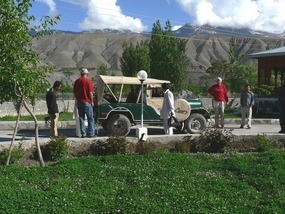
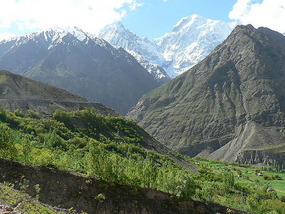
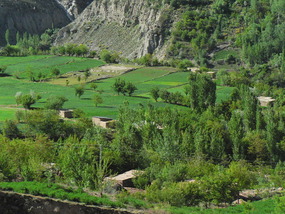
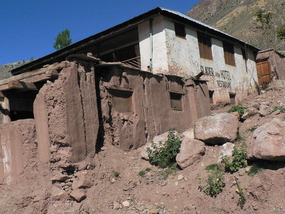
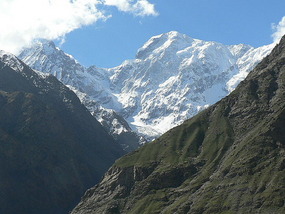
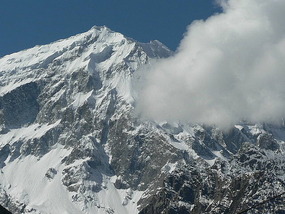
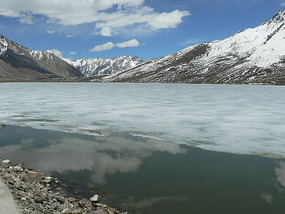
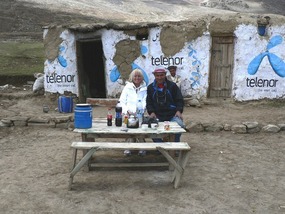
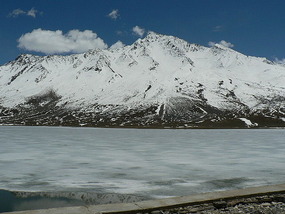
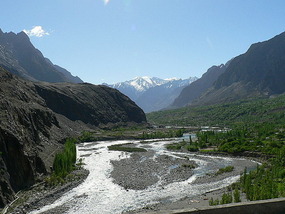
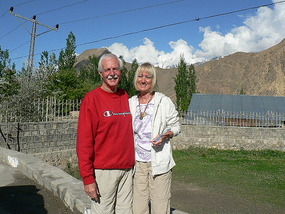
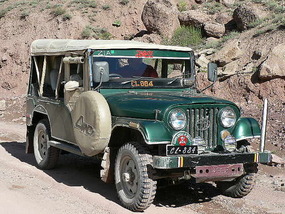
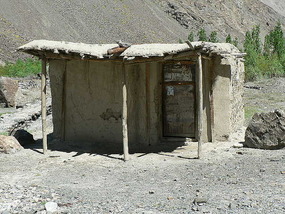
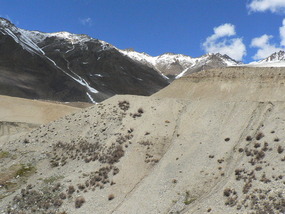
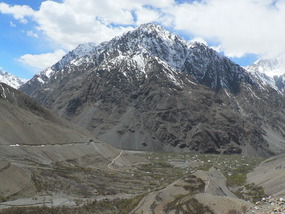
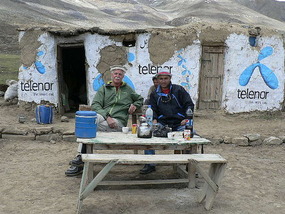
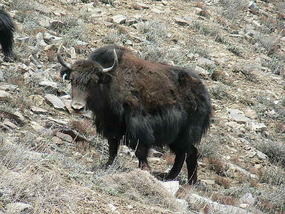
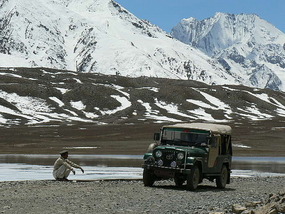
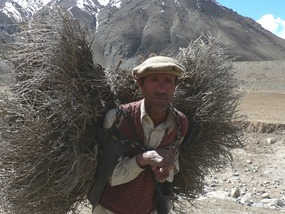
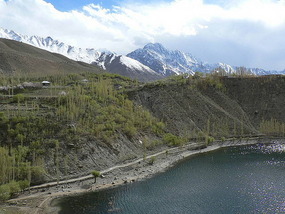
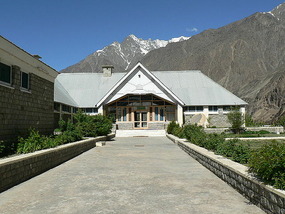
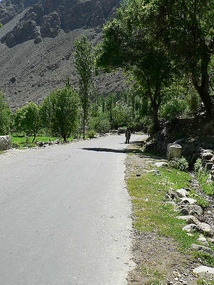
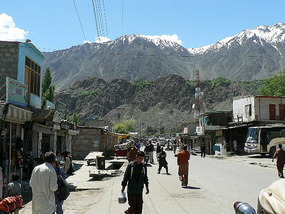





2025-05-22